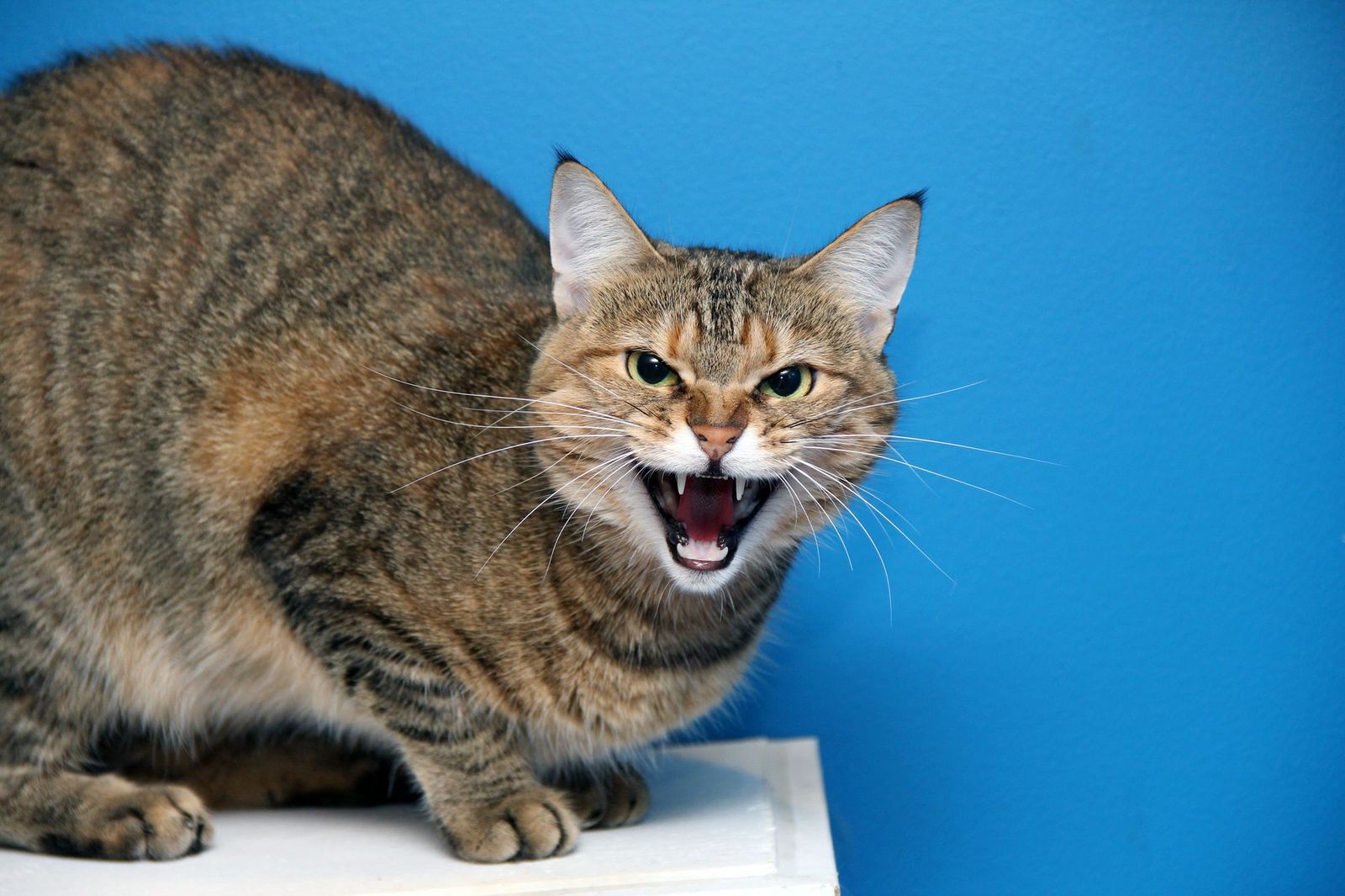Stress triggers in cats can vary differently from one cat to another. When a cat is stressed or frightened by something in their environment, it releases high levels of the stress hormone cortisol, their body’s fight-or-flight response.
A cat may be stressed for several reasons. Cats hide their stress well, so it’s best to take a proactive approach when dealing with their stressors. This article will discuss different stress triggers in cats and what you can do about them, so your cat can have a happier and healthier life.

WHAT CAUSES STRESS IN CATS
Changes in Your Work Schedule
According to Scientific American®, cats thrive on routine and keeping a schedule and are very sensitive to changes. Leaving for work earlier, getting home later, working from home, or working a different shift can stress your cat out.
How you can help: Make sure your cat has a safe and comfortable space to spend time when you’re gone. For example, place a Pawtect® Blanket on their favorite chair, so they can lay in the sun during the day. Pawtect® Blankets are waterproof and are made with special faux fur fabric that keeps cats warm and comfortable. Pawtect® Blankets can serve as comfort blankets for your stressed-out cat. You should also make sure to prioritize time with your cat when you’re at home, so they feel like they’re getting all the love and attention they need.
"Pawtect® Blankets are waterproof and are made with special faux fur fabric that keeps cats warm and comfortable."
Too Much Affection
Some cats are more sensitive than others to touch. And while they may like occasional rubs, scratches, and cuddles, they can become overwhelmed with too much physical contact. It’s important to respect a cat’s physical boundaries, so they feel safe in their environment.
How you can help: Get to know what kinds of touch your cat enjoys. And pay attention to their body language. If they’re moving away from you, flicking their tail, or turning their ears back, they’re not comfortable and need space.
Cat Fights
In some multiple-cat households, cats may have conflicts or fights with each other, especially if one invades the other’s space or territory. (To a pet parent’s eyes, this can sometimes seem like rough playing.)
How you can help: Make sure you provide your cats with their own safe places and essentials, like litter boxes, food and water bowls, toys, beds, and scratching posts. These will help reduce the conflicts between your cats. You may also want to place each cat’s accessories in different rooms of your home, so they can retreat from shared spaces when needed. If possible, provide your cats with extra toys, so they can choose their favorites and “claim” them.
Strangers
According to the Scientific World Journal, strangers are the most common cause of stress in cats. Seeing unfamiliar faces can be stressful, especially if they weren’t properly socialized when they were kittens. Strangers can include house guests, newborn children, your partner or parents who just moved in with you, or even a new pet.
Additionally, the sudden leaving of somebody in your household can also stress them out. This includes situations like someone going away for college, breakups, divorce, and death.
How you can help: Slowly introduce your cat to people and pets who are new to them. If they refuse or seem uncomfortable, try again after a few hours or the next day. Once they get used to a new person or pet, involve them in play sessions together. Make sure to practice positive reinforcement by offering them rewards or treats. Doing so will make the whole experience more pleasing to them.
"Cats thrive on routine and are very sensitive to changes. They want to live their lives according to schedule."
New Smells
Your scented candle and home perfume sprays may help keep you relaxed, but not your cat. Cats have a more sensitive sense of smell than humans, and your cat may find new smells quite strong or offensive. Smells that may trigger stress in your cat may include your perfume, cigarette odor, carpet fresheners, scented litter, and cleaning products.
How you can help: If your cat is easily triggered by smells, avoid using candles or perfumes. Switch to unscented products instead. When cleaning, open windows or turn fans on to help ventilate the space and give your cat fresh air.

Mirrors
Though many cats seem confident, most of them lack self-awareness. So when they stare right into a mirror, they see a different cat staring right back at them. They are not able to recognize themselves, so seeing their own reflection makes they think that another cat is invading their personal space.
How you can help: Avoid placing mirrors in your house that can be easily reached by your cat. And as much as possible, keep any mirror away from your cat’s scope of sight.
What if Stress Becomes Chronic?
Chronic stress in cats can occur over a long period of time and its symptoms may not always be obvious, making it more challenging to identify. Chronic stress have have an impact on your furbaby’s routines and behavior. According to The Veterinary Nurse, common signs of chronic stress in cats include: increased resting or sleep, increased dependency on the owner, extreme vigilance and heightened startle response, redirected aggression (aggression towards a target that is not the original source of threat), and ambivalent behavior (approach/withdraw, conflicting signals occurring almost simultaneously).
Although it is unreasonable to expect your cat to live a life free from possible stress triggers, understanding what those might be and helping to avoid them lessens the possibility of any health issues. Your cat trusts you to keep them safe and protected from anxiety, so it is a good idea to address these stress triggers if they’re experiencing them.









